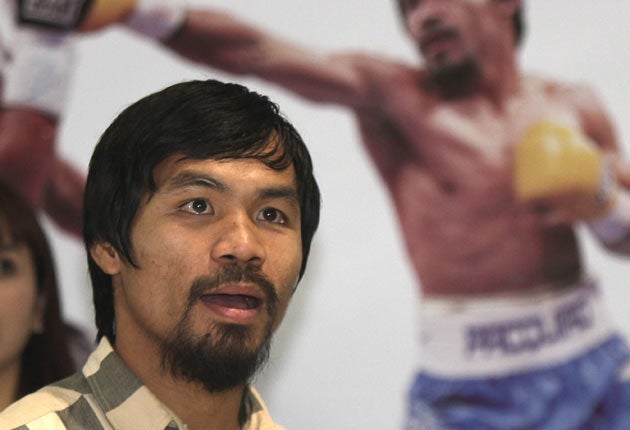Church and state clash over sex and condoms in the Philippines

Your support helps us to tell the story
From reproductive rights to climate change to Big Tech, The Independent is on the ground when the story is developing. Whether it's investigating the financials of Elon Musk's pro-Trump PAC or producing our latest documentary, 'The A Word', which shines a light on the American women fighting for reproductive rights, we know how important it is to parse out the facts from the messaging.
At such a critical moment in US history, we need reporters on the ground. Your donation allows us to keep sending journalists to speak to both sides of the story.
The Independent is trusted by Americans across the entire political spectrum. And unlike many other quality news outlets, we choose not to lock Americans out of our reporting and analysis with paywalls. We believe quality journalism should be available to everyone, paid for by those who can afford it.
Your support makes all the difference.A 13-year battle between church and state in the Philippines, one of the world's most devoutly Catholic nations, has come to a head over government plans to provide free condoms and sex education. Catholic bishops have threatened to excommunicate President Benigno Aquino over a reproductive health bill introduced into the Congress yesterday.
As well as the powerful church, Mr Aquino is opposed by one of the most popular figures in the Philippines, the world champion boxer turned congressman Manny Pacquiao.
Mr Pacquiao said this week that he would never have been born, or become a champion, if his parents had used contraception. "God said go forth and multiply," he declared. "He did not say just go and have one or two children."
The aim of the bill is to control population growth, reduce HIV infection rates and eradicate the need for women to seek backstreet abortions. Mr Aquino, who is determined to see it become law, is prepared to be banished from the church, if necessary. "I have been taught in school, which was a Catholic institution, that the final arbiter really is our conscience," he said yesterday.
But the church, which has enormous clout in the Philippines, is not about to give way. Since 1998, it has quashed several previous versions of the bill. "Sex is not a game that should be taught to children, along with the use of condoms, supposedly to avoid disease," the Archbishop of Manila, Gaudencio Rosales, told an anti-contraception rally in the capital two months ago.
About 80 per cent of Filipinos are Catholic, a legacy of the country's Spanish colonial past, and they look to the church for political as well as moral guidance. Two former presidents, the dictator Ferdinand Marcos and Joseph Estrada, were forced out of office by "people power" revolutions backed by religious leaders. Mr Aquino's late mother, Cory, another former president, was bolstered by the church's support.
Advocates of improved education and condom provision point to the rapidly growing population, which has doubled to 94 million in the past 30 years, and to the fact many people live in grinding poverty. While the HIV infection rate is low compared with other Asian countries, public health officials say tougher measures to prevent the spread of the disease are needed.
With abortion still illegal in the Philippines, 560,000 women visit backstreet clinics annually, according to a report by the New York-based Centre for Reproductive Rights. Of them, an estimated 90,000 experience complications, and 1,000 women die every year.
The church advocates abstinence and the bishops have called for condoms to carry warning labels, saying they create a false sense of security and encourage promiscuity.
Join our commenting forum
Join thought-provoking conversations, follow other Independent readers and see their replies
Comments